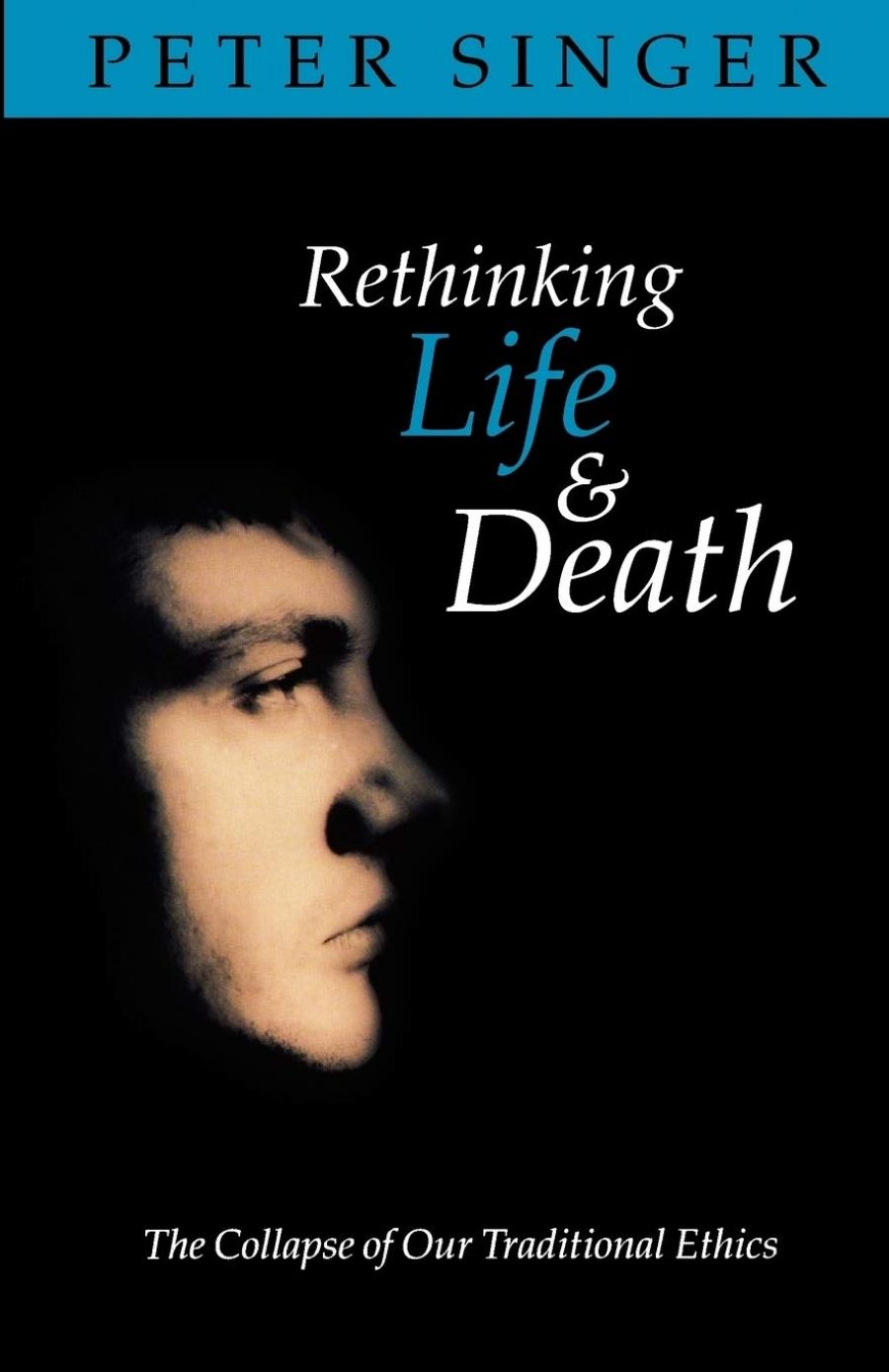
- Free Article: No
- Contents Category: Philosophy
- Review Article: Yes
- Online Only: No
- Custom Highlight Text:
There is no doubt of viciousness of existence. Bertolt Brecht spoke of how one minute you are striding out freely down a merry boulevard, the next poleaxed by a great lump of steel fallen from the heavens.
- Book 1 Title: Rethinking Life and Death
- Book 1 Subtitle: The collapse of our traditional ethics
- Book 1 Biblio: Text Publishing $16.95 pb
- Book 1 Readings Link: booktopia.kh4ffx.net/MGnZ3
If only it were as simple as that. While reading Peter Singer’s fresh testament on the ethics of iatric life and death, some images and memories kept flowering.
Several years ago, I found myself walking through a ward of Melbourne’s Children’s Hospital, where my son was coming to terms with his newly diagnosed diabetes, when a door swung open and I saw on a glistening steel table a naked writhing screaming toddler whose whole body was marbled white and red: third degree bums.
Four people close to me have succumbed to long and dreadful dyings. Charlie, a young Bendigo tearaway, died of malignant melanoma. My superb grandmother, Eva, shrivelled from cancer of the bowel and pain. Stuart gradually became cachectic and parchment-like, while most recently, Dinny O’Hearn endured the chemotherapeutic torments and complications of acute leukemia.
In reading the chapter on voluntary euthanasia, I thought of all of these and imagined the relief obtained had they actively been put out of their miseries. However, the four adults had been full of the life force, and I doubt whether one would have agreed to elective truncation. Indeed, Charlie, until finally bedridden, blew all his money on a spree of wine, women and song. Among the ethical revisions proposed by Singer, that in relation to voluntary euthanasia is probably one of the hardest for traditional ethicists to cop. Such euthanasia, or assisted suicide, is entertained in a medical context of grave illness, with unbearable suffering, where there is no hope.
The Netherlands, a bivalve of Protestantism and Catholicism, triumphs when it comes to voluntary and non-voluntary euthanasia. A 1990 government inquiry studied 48,700 deaths ·related to medical decision-making: 2,300 were voluntary euthanasiacs, 1,000 slipped their cable as a result of active medical intervention without an explicit patient request – ‘patients were near death and clearly suffering grievously’.
The Royal Dutch Medical Association has set down conditions which must be satisfied for a proposed euthanasia. There has not been a stampede to follow its example. Singer asks how many national medical associations would be prepared to accept that to kill the patient was good medical practice. I might suggest that in another sense this is already happening. When doctors go on strike, as happened in Los Angeles in 1976, the death rate declines!
If traditional moralists find the ethics of Peter Singer concerning euthanasia repugnant, they will greet his high ethical regard for the animal with ridicule and bewilderment, for it stabs at the heart of western Judaeo-Christian ideology: anthropocentricism.
Man was made in God’s image, is unique, and is superior to all animals and the natural order, these merely existing for our appetites and exploitation. Ignoring Copernicus, Galileo, St Francis of Assisi, Darwin, animal behaviourists, geneticists, the churches and political elites still cling to egocentric tenets, oblivious to the botch they are making of the world.
Peter Singer rounds on them, and rounds them up, working through the pertinent history and presenting authoritative ethical arguments backed up by clear scientific evidence.
Did you know that we share 98.4 per cent of our DNA with chimpanzees, and that we are genetically closer to them than they are to gorillas? Do you realise that the possibility of human and chimpanzee interbreeding cannot be ruled out? I would love to be around for the first marriage -what a wedding reception.
Deploying John Locke’s definition of a person, Singer argues that some animals should ethically be regarded and treated as persons, and that other ‘non-human animals’ which experience pain should not be blithely slaughtered.
A chief virtue of this book is Singer’s refusal to set his novel and scrupulously argued positions in cement. While there can be no return to the absolute-sanctity-of-life ethic (with its unwanted and disabled infants, foetal-maternal deaths, vegetables on respirators, patients condemned to years of satanic pain), Singer regards components of his new ethic as part of a continuous evolving process.
Early in Rethinking Life and Death we see how the ethical branches of the medical profession redefined death, especially in the light of new techniques which could keep irretrievably comatose patients functioning physically. A pioneer among those was the marvellously named Harvard Brain Death Committee. Singer shows its redrawing of death’s beckoning boundaries to be pragmatically stimulated: an avidity for choice organs for surgical transplantation.
With a minimum of hubris, Peter Singer concludes by replacing the first five aid commandments with five freshly minted ones, and in illustrating their applicability he pithily summarises all, its demonstrations of the good of worthful abortion, of medically and familially determined death, of euthanasia, even infanticide, inextremis, and animal rights, all within the brooding context of imminent global overpopulation.
For some time I have harboured a notion, corning through in my novels and some recent poetry, that the human species is devolving, as manifested in our treatment of children, our de-socialising and de-cerebralising obsession with technology, the impending death of the imagination, our cretinous overbreeding, and mutilating contempt for the natural world.
If the intense humanism of this commanding book could successfully be expanded from bioethics to human behaviour on the grand scale, then that ‘devolution’ might just belong to moral dynamics and not to the constitutional.


Comments powered by CComment